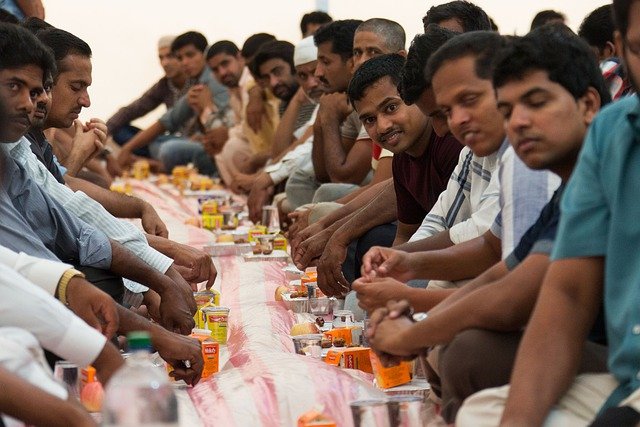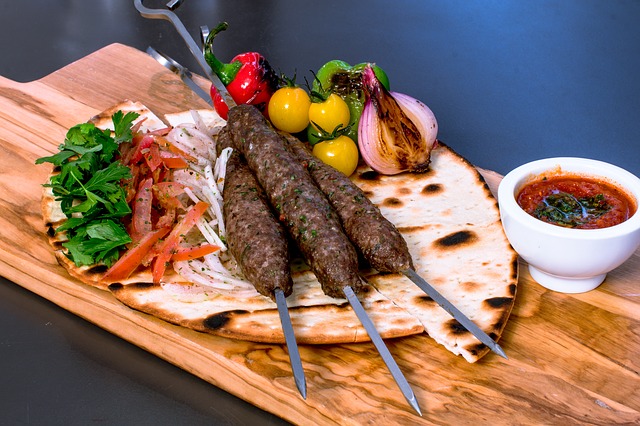Ramadan is an important time for Muslims across the world. Apart from fasting from dawn to dusk, Ramadan is a time to get closer to Allah and to devote yourself to your faith. It is a time to do good, remember the less fortunate, pray, and spend time with family and friends.
Ramadan involves fasting for several hours and you would expect to lose weight during this period. However, it might surprise you to find that you are adding weight. Gaining a few kilos can have negative consequences for your health. For instance, belly fat is dangerous and it increases your risk of getting a stroke, heart attack, and blood pressure. With the rise of obesity in the UAE, it is necessary to take measures to avoid adding unhealthy weight.
Why You Might Gain Weight during Ramadan
If you easily gain weight, especially during Ramadan you should not focus on consuming less; however, you should watch your calories. When you consume less food, it means your body is starved for nutrients, that’s why you end up gaining more weight to provide energy.
Most of the fat accumulates around the gut which is unhealthy because this leads to insulin resistance. One of the reasons why you might be gaining weight even if you are fasting is because you skip suhoor. This meal is important because it fuels you throughout the day and provides energy. It also prevents your body from going into starvation mode which causes weight gain.
5 Steps to Healthy Ramadan Weight Loss

It’s not easy to lose weight; however, it is possible. Ramadan can be the ideal time to lose weight healthily. Our 5-step guide to healthy Ramadan weight loss simplifies this for you.
- Watch Your Calorie Intake
One of the first steps to lose weight is to monitor your calorie intake. It’s necessary to watch how many calories you eat, especially during Ramadan when you are tempted to indulge in high-calorie foods. Although, you go many hours without food, don’t overeat high-dense meals.
You might also not lose weight if you overindulge in health foods. Although they are beneficial to your body, healthy foods might cause you to gain weight if they have too many calories. Inactivity and consuming too many calories leads to weight gain.
- Hydration
When you visit your favorite clinic in Dubai for Ramadan advice, the physician will advise you to stay hydrated. Hydration is a crucial factor when you are trying to lose weight. Dieticians and physicians always advice people to stay hydrated whenever they want to lose weight.
Although it seems impossible to follow because of the long fasting hours, you can break down your hydration plan. For instance, you can drink 2 glasses of water at Iftar. It’s also wise to remember that your body needs water after fasting. Water helps in the breakdown of food consumed after. You can continue to drink water between Iftar and Suhoor.
- Avoid Processed Sugar
The biggest culprit of weight gain during Ramadan is the consumption of too much sugar throughout the month. This can be in the form of drinks, food, and snacks. Although tempting, it is necessary to avoid these sugary treats if you want to lose weight.
Physicians all over the world and in clinics in Dubai will advise you to substitute processed sugar with naturally-occurring sugar. This comes from fruits, honey, and dried fruits. You can eat a fruit salad, which is not only delicious but also healthy and has no artificial sweeteners.
- Balanced Iftar
When you’re fasting, for instance, in Ramadan, your metabolism slows down and your body requires less energy. Therefore, your Iftar meal should not act as a substitute for those long hours of fasting.
Many people continue to gain weight during Ramadan because they consume a lot of food during Iftar. The large quantities of food and different varieties overfill the gut making digestion difficult.
The best way to lose weight is to view Iftar as any meal on a normal day. Also, don’t rush to eat all your food at one sitting. Instead, you can take a break and then continue with your meal. This will help you to determine how much food you still need.
- Don’t Skip Suhoor
Suhoor is the equivalent of breakfast during Ramadan. As the most important meal of the day, Suhoor gives you the energy to start and keep going throughout the day. Skipping this meal will make you feel hungrier which makes you overeat during Iftar. This, in turn, leads to weight gain.
Ramadan is a time to fast, get closer to Allah, and help the less fortunate. It’s also the ideal time to lose weight. It is as easy as watching your calories, staying hydrated, and eating healthily. In a nutshell, it all depends on the choices you make.




